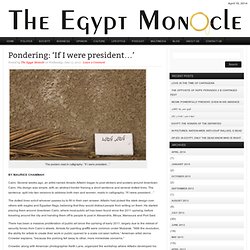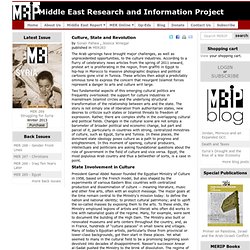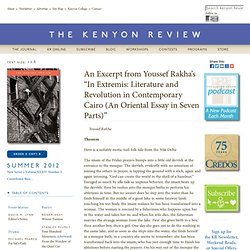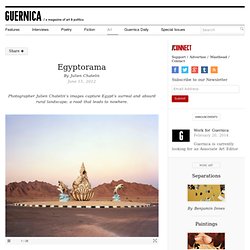

Egypt's christians. Art & Culture in Egypt. Pondering: ‘If I were president…’ Posted by The Egypt Monocle on Wednesday, June 13, 2012 · Leave a Comment The posters read in calligraphy: “If I were president…” Cairo: Several weeks ago, an artist named Amado Alfadni began to post stickers and posters around downtown Cairo.

His design was simple, with an abstract border framing a short sentence and several dotted lines. The sentence, split into two versions to address both men and women, reads in calligraphy: “If I were president…” The dotted lines solicit whoever passes by to fill in their own answer. There has been a massive proliferation of public art since the uprising of early 2011, largely due to the retreat of security forces from Cairo’s streets. Crowder, along with American photographer Keith Lane, organized the workshop where Alfadni developed his project. They studied and discussed well-known examples of publicly engaged art, like that of the Situationist International in Europe, the Yes Men in the US, and Egyptian art collective Mahatat. Alfadni disagreed. Culture, State and Revolution.
The Arab uprisings have brought major challenges, as well as unprecedented opportunities, to the culture industries.

According to a flurry of celebratory news articles from the spring of 2011 onward, protest art is proliferating in the region, from graffiti in Egypt to hip-hop in Morocco to massive photographic displays and political cartoons gone viral in Tunisia. These articles then adopt a predictably ominous tone to express the concern that resurgent Islamist forces represent a danger to arts and culture writ large.
Two fundamental aspects of this emerging cultural politics are frequently overlooked: the support for culture industries in mainstream Islamist circles and the underlying structural transformation of the relationship between arts and the state. The story is not simply one of liberation from authoritarian states, new desires to criticize such states or Islamist threats to freedom of expression. State Involvement in Culture Revolution’s Challenges. An Excerpt from Youssef Rakha's "In Extremis: Literature and Revolution in Contemporary Cairo (An Oriental Essay in Seven Parts)"
Youssef Rakha Theorem Here is a suitably exotic Sufi folk tale from the Nile Delta: The imam of the Friday prayers bumps into a little old dervish at the entrance to the mosque.

The dervish, evidently with no intention of joining the others in prayer, is tapping the ground with a stick, again and again intoning, “God can create the world in the shell of a hazelnut.” Enraged as much by idle talk as impious behavior, the imam beats up the dervish; then he rushes into the mosque baths to perform his ablutions in time. The point of this story is to illustrate faith in the mystery of God’s omnipotence. In contemporary Egypt — and, more broadly, the contemporary Arab cultural sphere — the imam and the dervish stand, respectively, for power- and knowledge-based literary endeavors. This is just one of the ways in which the imam-dervish duality may serve as a model of the convergence of politics and literature in contemporary Egypt — which takes on new relevance in the light of the Arab Spring.
Egyptorama by Julien Chatelin. Photographer Julien Chatelin’s images capture Egypt’s surreal and absurd rural landscape; a road that leads to nowhere.

Showing image 1 of 28 The images of a crowded and riotous Tahrir Square are the most recent portraits of Egypt burnished in the public imagination. They offer a glimpse into a constantly evolving narrative of a nation whose political upheaval has transformed our understanding and perceptions of politics in the Arab world. Far from Cairo’s tumultuous center, however, lies a world trapped in time, cities littered with the remains of real-estate promoters’ pharaonic projects. It is an abandoned landscape where a solitary figure wandering the empty streets seems to endlessly linger, and the half-built apartment buildings scattered on the sides of the road give the impression not only of defeat, but a cruel absurdity. After graduating from the NYU Tisch School of the Arts in photography, Julien Chatelin returned to France in 1992 to become an independent photojournalist.
Poverty in Egypt. The Egyptian Education system. Egypt / Israel relations. To sort...